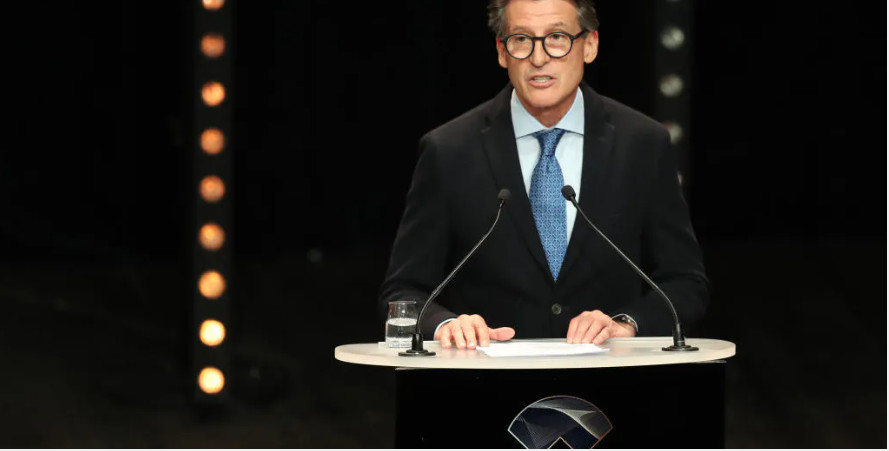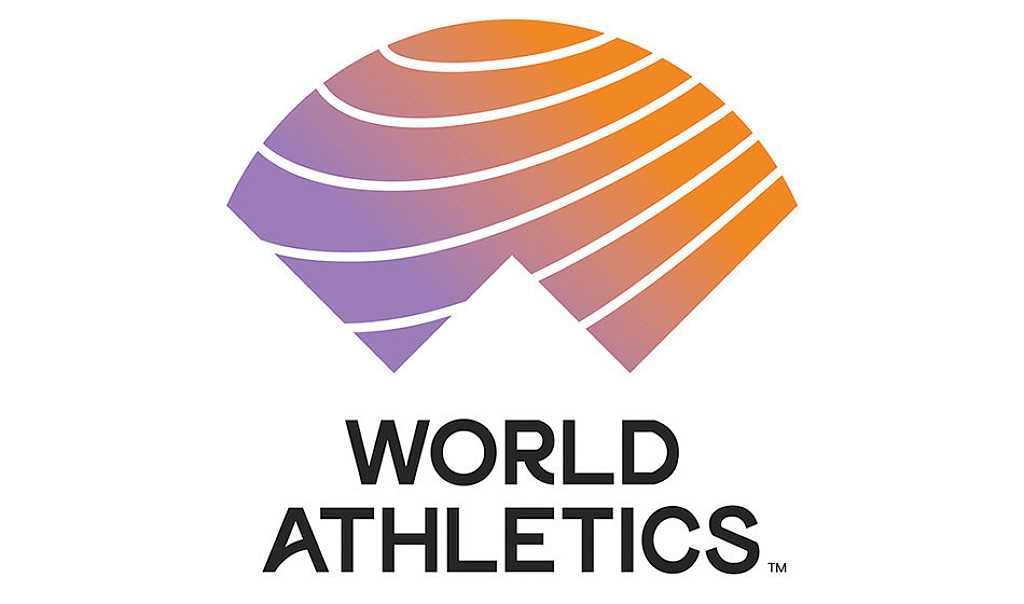Running News Daily
Running News Daily is edited by Bob Anderson. Send your news items to bob@mybestruns.com Advertising opportunities available. Train the Kenyan Way at KATA Kenya and Portugal owned and operated by Bob Anderson. Be sure to catch our movie A Long Run the movie KATA Running Camps and KATA Potato Farms - 31 now open in Kenya! https://kata.ke/
Index to Daily Posts · Sign Up For Updates · Run The World Feed
World Athletics incurred $17.4m loss in 2019, despite RusAF payment
World Athletics registered a loss of $17.42m (€14.71m/£13.58m) in 2019, further eating into its cash reserves in the year before the Covid-19 pandemic struck the sports industry.
Although revenues at the organisation increased by 13 per cent on the previous year to $51.1m, this was outstripped by expenditure for the same period, which stood at $67.8m.

The losses could have been worse had the organisation not received a one-off payment of $3.38m from the Russian Athletics Federation as part of the sanctions imposed on the country for breaching the sport’s anti-doping rules. The bottom line was also helped by expenditure being down 5.5 per cent on the previous year due to having held just three World Athletics Series events versus five in 2018.
The figures continue an unenviable sequence of losses for the organisation, leaving it with cash reserves of $34.3m at the end of its four-year funding cycle. This was a significant decrease on 2018, when reserves stood at $45.25m, and 2017, when they were declared at $64.8m, leaving the impression of a federation that is consistently spending beyond its means.
Broadcast rights revenue in 2019 totalled $14.7m, while commercial rights revenue was $18m.
A global federation would expect to balance the books over a four-year cycle but the organisation is also reported to have incurred a $20.3m loss in 2017, the year the World Athletics Championships were held in London.
SportBusiness understands the federation has historically aimed to never to exceed a $10m loss in any financial year, the equivalent of the amount it receives each year in funding from the International Olympic Committee.
The steep downward trajectory becomes more troubling given the accounts refer to the period before Covid-19 laid waste to sports events around the world and threatened the cash flows of most global sports federations.
The postponement of the Tokyo 2020 Olympics means the athletics federation is facing an additional one-year wait for the $40m it receives every quadrennial from the International Olympic Committee and it remains to be seen what kind of event will be delivered and if the IOC’s sponsors and broadcasters will demand rebates.
World Athletics is one of several IFs to receive a portion of $63m in emergency loans and donations from the IOC to see them through the crisis. The Association of Summer Olympic International Federations (ASOIF) said in June that it does not anticipate international federations will face bankruptcy thanks to a combination of financial support and reserves being put in place.
In its latest accounts, World Athletics make a commitment to stem the outflow of money from its reserves from 2020 onwards saying: “to safeguard the organisation, the new Executive Board has agreed that the organisation should hold reserves of $25m at all times, which amounts to approximately 50 per cent of the organisation’s annual revenue”.
In his introduction to the annual report World Athletics president Sebastian Coe suggests the organisation will try to achieve this by controlling its costs and striking new commercial partnerships.
“A root-and-branch review of all HQ expenditure during 2018 and 2019 led to HQ staff freezes and excess costs cut from across the organisation,” he said. “The benefits of many of these decisions will be seen from 2020 onwards.”
A World Athletics spokesperson said there had been no cuts to athlete programmes in 2020 and the organisation did not anticipate reducing spending in this area in 2021 or 2022. World Athletics said it delivered US$17.2m in new grant funding directly to member federations over the four-year cycle.
Dentsu renegotiations
Coe said a new sponsorship deal with Qatar National Bank and a renegotiation of the federations’ 10-year global media and marketing partnership with Japanese marketing agency Dentsu had helped to plug revenue shortfalls left by other sponsors leaving the sport.
As reported previously by SportBusiness, the original 10-year deal with Dentsu, agreed unilaterally by former president Lamine Diack, and covering the global media and marketing rights – excluding Japan and Europe – to the World Athletics Series, was the source of some consternation for those who inherited the deal at the organisation.
In a written exchange with a French judge investigating the previous regime, the federation’s own lawyer Régis Bergonzi complained that the money accruing to the global federation was calculated “solely on the money actually received by Dentsu” and there was effectively nothing in the contract to prevent the agency from declaring whatever it wanted when calculating the profit share.
The agreement also stipulated that profit share revenues were only payable to World Athletics at the end of the 10-year contract, harming the federation’s cash flows and adding to the sense that the contract that was heavily weighted in the agency’s favour. The deal is understood to have been the reason Olivier Gers resigned as chief executive of the organisation in 2018, citing its ‘pre-existing commercial framework’.
The new leadership at the governing body, mandated by the World Athletics Council, renegotiated the 2020-29 contract in 2018, sometime after Gers left, even though it was not due to expire until 2029. The latest accounts shed new light on this renegotiation and reveal that Dentsu now has to make a profit share payment every two years “based on the surplus realised each year by the event related to these rights”. This led to a recognition of a contract asset of $8.4m as of January 1, 2018 which was paid during the 2018 financial year.
The federation had also previously complained about the opacity of the original Dentsu agreement which prevented it from auditing the sums involved in the sponsorship and broadcast deals signed by the agency. But a World Athletics spokesperson said the federation had secured some significant concessions in the renegotiation.
“As part of the renegotiated deal with Dentsu, there is greater transparency as it relates to sponsorship incomes received. Unlike the past, there is no deduction for expenses incurred by Dentsu to source these partnerships from the profit share pool,” the spokesperson said. “Profit share calculation is based on contracted party revenues that are validated between Dentsu and ourselves. While not formally audited, the calculation is also reviewed by [accountants] EY before they sign off on our accounts.”
The report said the Japanese agency concluded 10-year renewals with TDK, Asics and Seiko at an uplift of 10 per cent to their previous deals and renewed the organisation’s equipment supplier partnership with Mondo through to 2023. TBS, a World Athletics official media partner, were also extended in 2019 for a further 10 years.
The publication of the financial report also marks a new chapter of transparency for World Athletics and the first occasion it has sought to comply with International Financial Reporting Standards. Previously, the media has been left to parse leaked financial statements such as the 2018 set of accounts revealed by the Sports Examiner in June this year.
Coe said the appointment of former DuPont executive Vineesh Kochhar as the organisation’s new chief financial officer would bring a new discipline of corporate financial management. He added that new chief executive Jon Ridgeon would also help to drive revenues and manage expenditure.
The president said of the results: “These 2019 consolidated financial accounts come at the end of a tough and turbulent four years for our sport. Four years of extensive reforms across the sport have been driven by our Council and implemented by our Member Federations, Area Associations and Head Office.
“I will not pretend this has been easy. Tough decisions have been taken by everyone at all levels of the sport, but I believe we have emerged stronger, more resilient and ready to build and grow the sport at every entry point.”
This story was corrected at 14.51 BST. The original story said World Athletics received $6.31m from RusAF in 2019 related to doping sanctions but the actual figure was $3.38m. The governing body received a further $6.31m from the Russian federation in August this year that will be recognised in next year’s accounts.
Login to leave a comment




